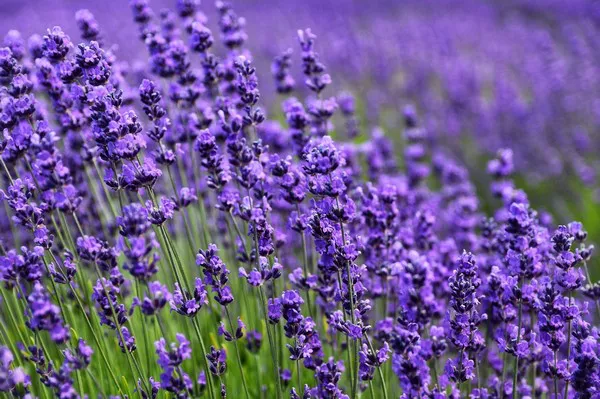Mosquitoes, the tiny but persistent pests that often disrupt our outdoor activities, are a ubiquitous part of our environment. While various methods exist to keep these bloodsuckers at bay, one natural and aesthetically pleasing approach involves harnessing the power of flowers. In this article, we will delve into the fascinating world of flora, unveiling the flowers that mosquitoes hate. By understanding the botanical allies in our fight against mosquitoes, we can create harmonious and insect-free outdoor spaces.
The Mosquito Menace
Before we explore the specific flowers that mosquitoes despise, it’s crucial to understand why these insects are such a nuisance. Mosquitoes, belonging to the Culicidae family, are not merely annoying; they also pose health risks by transmitting diseases such as malaria, dengue fever, and Zika virus. The incessant buzzing and itchy bites can turn a pleasant outdoor experience into a frustrating one. Employing flowers that naturally repel mosquitoes provides an environmentally friendly and visually appealing solution to this persistent problem.
Harnessing Nature’s Repellents
Several flowers possess inherent properties that make them unappealing to mosquitoes. These properties include specific scents, natural oils, and compounds that act as deterrents. By strategically incorporating these flowers into our gardens, we can create a barrier that makes mosquitoes think twice before venturing into our outdoor spaces.
Flowers That Mosquitoes Hate
Lavender (Lavandula angustifolia)
Lavender, known for its soothing fragrance and vibrant purple blooms, is a powerful mosquito repellent. The distinct scent of lavender contains compounds like linalool and linalyl acetate, which mosquitoes find repugnant. Planting lavender in garden beds, pots, or as a border around outdoor seating areas can help keep mosquitoes at bay while adding a touch of elegance to the surroundings.
Citronella (Cymbopogon)
Citronella is a classic choice for mosquito repellency. Extracted from various plants within the Cymbopogon genus, including C. nardus and C. winterianus, citronella oil is commonly used in candles, sprays, and lotions. Planting citronella grass in the garden or placing citronella candles strategically can create an effective mosquito-free zone. The strong citrus scent acts as a natural deterrent, making it an excellent addition to outdoor spaces.
Marigold (Tagetes)
Beyond their vibrant hues, marigolds boast a natural ability to repel mosquitoes. Marigolds contain pyrethrum, a natural insect repellent commonly found in mosquito-repelling products. Planting marigolds around entrances or near outdoor seating areas provides both visual appeal and functional mosquito protection.
Chrysanthemum (Chrysanthemum spp.)
Chrysanthemums, with their diverse array of colors and shapes, contain pyrethrin, a natural insect repellent widely used in mosquito repellent sprays and coils. These flowers not only add beauty to gardens but also act as a natural deterrent, making them a valuable addition to any mosquito-resistant landscaping.
Rosemary (Rosmarinus officinalis)
Rosemary, a fragrant herb commonly used in culinary applications, also doubles as a mosquito repellent. The plant contains compounds like rosmarinic acid and essential oils that mosquitoes find displeasing. Placing potted rosemary near outdoor seating areas or incorporating it into landscaping can contribute to a mosquito-free environment while providing a fresh and aromatic ambiance.
Basil (Ocimum basilicum)
Basil, another versatile herb used in cooking, emits a strong aroma that mosquitoes dislike. The essential oils in basil, including citronellol and linalool, act as natural repellents. Growing basil in pots or planting it in garden beds not only enhances your culinary endeavors but also helps create a mosquito-resistant outdoor space.
Designing a Mosquito-Resistant Garden
To maximize the effectiveness of mosquito-repelling flowers, thoughtful garden design is essential. Consider the following tips to create a harmonious and insect-free outdoor space:
1. Strategic Placement: Plant mosquito-repelling flowers near entryways, seating areas, and around outdoor gathering spaces to form a natural barrier against mosquitoes.
2. Diverse Selection: Combine multiple types of repellent flowers to create a diverse and visually appealing garden. This not only enhances the aesthetic but also provides a more comprehensive defense against mosquitoes.
3. Companion Planting: Explore companion planting strategies to maximize the benefits of mosquito-repelling flowers. Certain plants work synergistically to enhance each other’s insect-repelling properties.
4. Consider Sunlight and Soil Conditions: Choose flowers that thrive in your specific sunlight and soil conditions to ensure their optimal growth and mosquito-repelling effectiveness.
5. Maintenance: Regularly prune and care for your mosquito-repelling plants to maintain their health and effectiveness. Overgrown or unhealthy plants may not be as efficient in repelling mosquitoes.
Conclusion
In the ongoing battle against mosquitoes, harnessing the power of nature is not only effective but also visually appealing. By incorporating flowers that mosquitoes hate into our outdoor spaces, we can create a harmonious environment that promotes well-being and relaxation. From the classic beauty of lavender to the vibrant hues of marigolds, these flowers not only add charm to our gardens but also act as natural barriers against the persistent mosquito menace. Embrace the beauty of nature while keeping mosquitoes at bay – a perfect union of aesthetics and functionality in outdoor living.


